While Realtors play an important role in the home purchase process and in the busy time we live in, it is understandable why it would appeal to a buyer to have one less thing to do by allowing the Realtor to set up the inspection(s). However, we recommend you contact us so we can build rapport and ask each other questions directly rather than through the Realtor, which could leave room for miscommunication.
After answering any questions, you may have, we will gather information from you such as the homes address, size (pricing is based on square footage), age and your contact information. We will also need to know your inspection needs; home, well, septic inspection, radon testing or all the above. Then we will need to set a date and time for the inspection.
While you are welcome, you are not required to attend the inspection. If you would like to attend, please give us the first 2 hours (generally speaking) alone. If we have the first 2 hours alone, most if not all of the inspection (which can be a tedious process) can be completed. We want to do the best job possible and having time to concentrate without interruption, helps accomplish this. If you would like to attend after our 2 hours alone, we will give a summary of what we observed during the inspection. The inspection report includes pictures and we try to give detailed descriptions of what we saw, so whether there or not, you understand what we are highlighting.
We will need you to read and sign an inspection agreement which will be emailed to you for electronic signature. A copy of the invoice will be emailed before the inspection agreement and the invoice email includes instruction regarding the inspection agreement email, sent shortly after the invoice email. We write any inspection reports the day of the inspection(s), but we hold the report/reports until we have received payment. We accept cash or checks. We also accept credit cards. We use Square Reader to accept credit cards and Square Reader adds a 3.35% transaction fee that we pass along to you. If you wish to pay by credit card, we will email an invoice through Square Reader, so you can pay securely online. If attending the inspection, typically bringing payment to the inspection is the easiest method of payment. Otherwise, please mail a check to reach us by the inspection day so there is no delay releasing the report/reports, waiting for the check to arrive.
While a blessing, children tend to be a distraction to the inspection process. At times a couple will bring one or occasionally, both sets of parents to the inspection. They value their parent’s opinion and want their input regarding such a large investment. However, focusing on the inspection process, both for the inspector and for the buyer, becomes exponentially more difficult with each additional person present.
Our inspection report will be emailed to you. While not a common occurrence, if you do not have an email address, we will email the report directly to your Realtor. Even with your own email address, you may want to give a copy to the Realtor, bank etc., but legally, we can only give copies with your permission. We cannot legally share inspection information with anyone except you, without your permission.
We only offer recommendations of necessary repair or replacement of damaged or worn items. We do not make the repairs ourselves.
The inspection is performed at or above State Standards as required by the State of Wisconsin.
A home inspection is not a code inspection. A home inspection is a trained and detailed evaluation of the function of the house and its components to judge if there is damage, defects, health or safety concerns etc., that need to be highlighted.
An inspection is not a warranty or a guarantee against problems arising in the future. An inspection is to find existing, visible issues.
Think of the inspector as a “General Practitioner.” He/she is trained to have general knowledge about all areas so that more common issues can be recognized and discussed. If, however, there are specialized problems that are out of the general field he/she has enough training to recognize the problem and then recommend further evaluation by an expert that specializes in that area.
